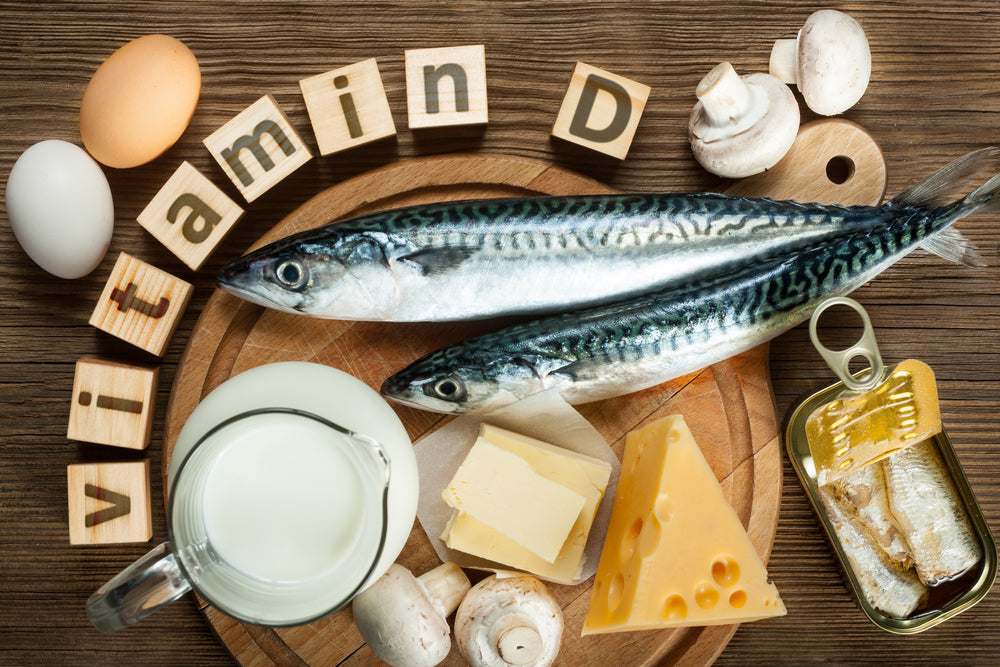In a nutshell!
Calciferol refers to several related fat-soluble vitamins. However, D2 or ergocalciferol is the major synthetic form and cholecalciferol, or D3, is found in animals. Both are converted in the liver and kidneys to the major active forms.
What does it do?
Its main function is helping to regulate calcium metabolism, which is essential for healthy teeth and bones, together with phosphorous which also works synergistically with calcium. Even with adequate calcium intake, if vitamin D is low, there is a risk of poor calcification of the bones. It is therefore crucial for the bones and teeth of growing children, as well as being important for the immune system, muscle growth, normal blood clotting and heart function.Read more
Daily Requirement
EU NRV* 5µg EVM USL** 25 µg
Food Sources
It is mainly found in animal sources such as egg yolks, dairy products, liver, oily fish and fortified margarine.
You need to know
Vitamin D is known as the ‘sunshine vitamin’ because it is predominantly produced on the skin in the presence of sunlight. Therefore, living in the northern hemisphere is a risk factor for deficiency, particularly during the winter months. Such is the concern of the UK Department of Health that supplemental intake is recommended for at risk groups being, pregnant and breastfeeding women, the elderly, children from birth to the age of five, and those with darker skins. Synthesis of vitamin D on the skin is almost impossible from November to February at sea level in the Northern Hemisphere.
Pregnancy and breastfeeding
The Department of Health recommends supplementing 10µg daily to pregnant and breastfeeding women.
Are you getting enough?
Rickets in children has been noted, since the UK population appears to be generally deficient in vitamin D. In adults, osteomalacia, which is manifested by poor calcification and soft bones, has become more common. Additionally, osteoporosis, problems with the teeth and gums, muscle weakness and bone and joint pain, may be symptoms of deficiency.
Why do I need it?
Vitamin D can be stored in the liver, skin, brain, spleen and bones, although deficiency appears to be widespread. Its primary function is to prevent rickets, which is the most well-known deficiency disease of vitamin D. It is also needed to prevent gum disease and tooth decay. It is useful in cases of fractures or other bone diseases such as osteoporosis. Vitamin D works together with parathyroid hormone in calcium metabolism. This helps to regulate the amount of calcium and phosphorous in the blood; if blood levels are low, these minerals are pulled from the bones causing the various bone diseases mentioned above but also affecting the heart and nervous system. Vitamin D also plays a very important role in protecting the health of the immune system. Finally a deficiency of vitamin D has been implicated in Type 2 diabetes.
Did you know?
Newer research is showing that the onset of multiple sclerosis may be influenced by low vitamin D levels during puberty and this appears to be more marked in the northern parts of the UK.
Try this
Vitamin D is found in the Alive! range of multi vitamins and minerals from Nature's Way
* EU NRV means upper safe level ** Expert Group upper safe level

